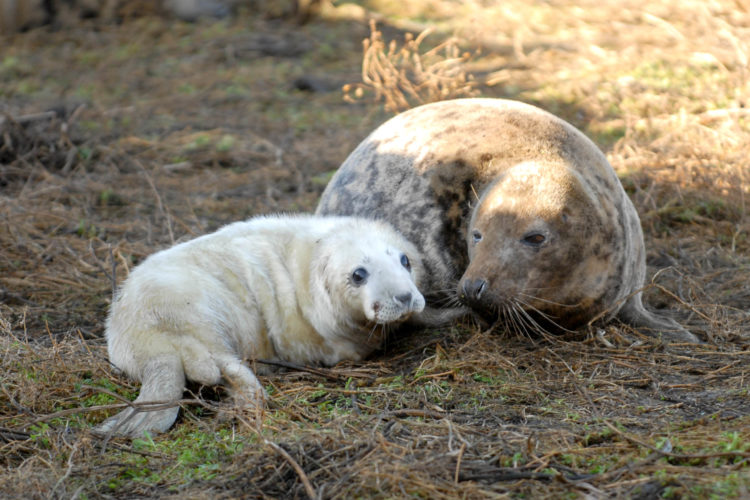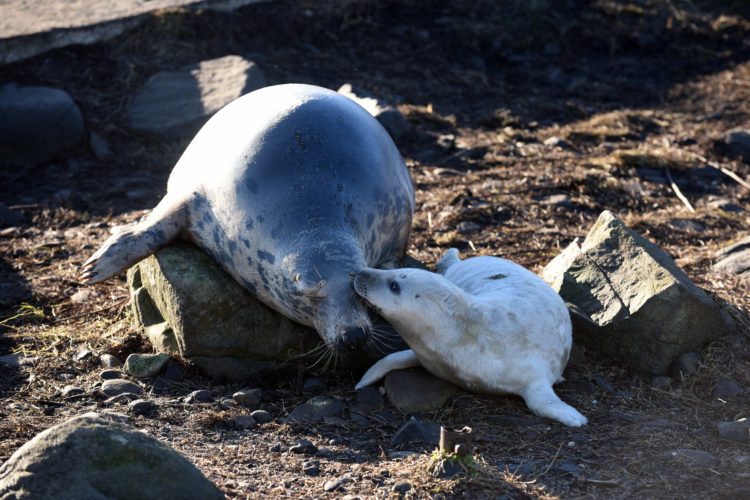Oxytocin linked to growth in seal pups

Scientists at the University of St Andrews have, for the first time, shown that grey seal pups with naturally high oxytocin levels gain more mass before weaning, without increasing the amount they are fed.
The new research, led by Dr Kelly Robinson, a research fellow at the Sea Mammal Research Unit (SMRU) at the University of St Andrews and funded by the Natural Environment Research Council (NERC), published in the journal Psychoneuroendocrinology, reveals that seal mothers with high oxytocin levels produced pups with high oxytocin levels and, as the pup’s oxytocin levels increased, so did the rate that the pups gained mass.
The hormone oxytocin occurs in all mammals, and controls parental and social bonding and behaviour. Oxytocin is well known for its crucial role in social behaviours, but it can also affect energy balance and feeding. This study demonstrated that these two areas of the hormone’s functionality are connected in natural environments for the first time. This helps scientists understand how the physiology and behaviour of mothers and infants are linked, promoting the health and survival of both.

Steady mass gain postpartum is crucial for successful infant development and survival in all animal species. The recorded increase in mass gain rate in the seal pups was not caused by differences in feeding behaviour and the mothers of high oxytocin pups did not have to expend more energy to cause this difference in physical development.
The study was conducted on two breeding colonies off the coast of Scotland, North Rona and the Isle of May, where Dr Robinson collected behavioural observations, mass measurements and blood samples from wild mother-pup pairs in their natural environment.
Dr Robinson said: “Infancy is a crucial time for growth and development, and this study connects the oxytocin driven mechanisms for parent-infant bonding with the energetics underlying parental care. By demonstrating that oxytocin release may connect optimal parental or social environments with advantages for physical infant development, we can help understand why some infants can sadly fail to thrive while they are very young. Studying this mechanism could also aid the development of medical interventions and animal husbandry practises to help mother-infant pairs develop strong bonds and encourage mass gain in young infants during this important stage of life.”
Category Research